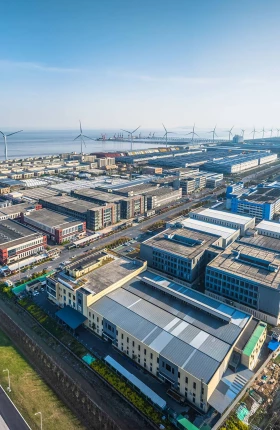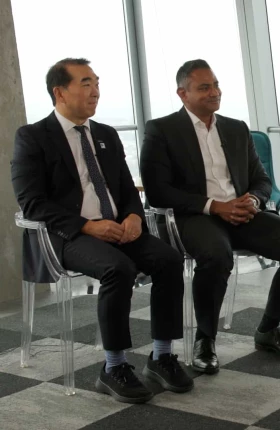不確実性が「常態」として経営の前提に組み込まれている今日、日本企業は変化を受容し、主体的に勝機を見極める姿勢が求められています。BCGコンサルタントが考える、2026年時点でビジネスリーダーが検討すべき10の経営論点を提示します。
Featured Insights
日本語コンテンツ

Article
2025年10月28日

Slideshow
2025年11月12日
BCGは、サステナブルな社会の実現に関する消費者意識や購買行動の変化を理解するために定点調査を行っています。その最新の結果を紹介します。

Report
2024年12月13日
「BCGカーボンニュートラル・インデックス」は、日本企業を対象に、カーボンニュートラル経営への取り組みの成熟レベルを評価する指標です。最新の調査では、サステナビリティ経営も評価対象に追加しました。

Article
2023年8月24日
ほとんどの消費者がサステナブルな製品を取り入れたいと考える一方で、実際にプレミアムを支払っているのは1~7%です。このギャップを解消し、サステナブルなライフスタイルを普及させるための3つの必須要件をご紹介します。

Article
2021年11月22日
各国のダイナミクスの中で日本や日本企業がカーボンニュートラルにどう対峙するべきか、ヒントを提示するとともに、企業が描くカーボンニュートラルへのロードマップを3つのステップ、10の取り組みに分け、事例をまじえて解説します。
Sustainability Policy and Regulation

Article
2025年2月19日
Transitioning to green energy creates a healthier planet while providing countries with job growth and greater energy security. However, governments will have to make many policy tradeoffs.

Article
2025年2月25日
Although the energy transition will continue worldwide, the past year’s election results around the globe have prompted many government leaders to devote more attention to energy affordability and energy security.

Article
2025年4月21日
To thrive in uncertain times, packaging companies must remain flexible while investing in capabilities that will define future industry leadership.

Article
2025年3月27日
New fuels can decarbonize the commercial aviation industry, but stakeholders will need to move faster to achieve 2030 targets.

Six actionable opportunities for EU policymakers to accelerate the transition to regenerative agriculture at scale.

Article
2025年1月23日
To seize the economic opportunity presented by the global green transition, policymakers need to concentrate on the following principal levers and key success factors.

Article
2024年11月19日
By taking a strategic approach to ESG reporting—focusing only on materially relevant aspects—boards can meet regulatory requirements and concentrate attention on critical sustainability goals.
Highlights from UNGA & NY Climate Week
Video
2025年10月3日
How Shared Risk Can Power Climate Solutions
A blended funding strategy broadens investment risk to mobilize capital for climate adaptation and resilience, say Lightsmith’s Jay Koh and BCG’s Dave Sivaprasad.
Video
2025年9月30日
In Scaling Climate Businesses, Partnerships Are Key
After years of innovation in climate technologies, Carbon Clean’s Aniruddha Sharma and BCG’s Alex Dewar say significant scaling is next—and that will require partnerships.
Video
2025年9月25日
Helping Companies Tackle Plastic Waste
Companies can drive business outcomes—meeting the needs of supply chains, marketing teams, and customers—while reducing plastic usage, says Sebastian DiGrande of PCX Markets.
Video
2025年9月25日
The Missing Logistics Link in Sustainability
Joerg Wiese of the Kuehne Climate Center highlights why leaders must frame climate action as a business opportunity and build coalitions to scale their efforts.
Monthly Newsletter Subscription
The Sustainable Advantage: Build lasting impact through sustainability
Climate Innovation and Tech
Video
2025年11月4日
Mobilizing Private Equity is Key to Closing the Climate Finance Gap
Wendy Woods and Carbon Equity’s Saskia Bruysten explore how democratizing investment in private markets can funnel investment into much needed climate tech and innovation.
Video
2025年10月29日
Reinventing Products for Profit, Performance, and Planet Through Design to Sustainable
Value
Alejandro Navarro shows how BCG’s Design to Sustainable Value can help companies cut costs, boost margins, and reduce emissions, turning disruption into opportunity.

Article
2025年6月11日
A second major survey and report by GCMD and BCG closely tracks the shipping industry’s progress toward net zero. This extract outlines the new report’s key findings.

Article
2025年5月6日
Forests can anchor a high-integrity voluntary carbon market—if developers, landowners, and market leaders shift from transactional credit models to long-term asset stewardship.

Article
2025年6月17日
Companies that combine smart investment with targeted innovation in their value chains can achieve competitive advantage.
Video
The Key to Sustainable Growth is Deep Innovation
Lauren Taylor offers a blueprint for creating planet-friendly products that do not ask customers to compromise.
Finance and Investment

Article
2025年6月27日
The blended finance market is larger than it appears. With the right moves, banks can turn early leadership into long-term advantage.

Report
2025年5月6日
A comprehensive map of opportunities in Climate A&R solutions shows that the market is primed for investors to act now.

Article
2025年1月28日
To advance sustainability at scale, leaders need to double down on those initiatives that accelerate the growth and duration of cash flows.

Article
2025年1月16日
Addressing climate change is creating opportunities that may be worth $11 trillion by 2040. Countries that act early can position themselves for growth.
Video
2025年3月6日
Green Economy: The Opportunity and the Trade-Offs

Report
2024年10月23日
Private equity-owned companies are taking steps to reduce their carbon emissions in both the long and short term. The key is establishing a decarbonization strategy and clear goals.
Nature and Environment

Article
2025年5月1日
As they face unprecedented volatility in global agrifood supply chains, decision makers can act today to build long-term resilience and competitive advantage.
In this short film, two experts share a meal to discuss the roles that corporations and individuals have to play in creating a more sustainable food system.

Article
2024年11月7日
Investment in sustainable agriculture will be key in order for farmers to keep up with rising global food demand.

Article
2025年3月28日
Greater biodiversity is the key to healthier soil. And healthier soil is the key to a range of environmental and economic benefits. Here’s how to achieve them.

Article
2024年7月11日
Governments and alternative protein players should follow three lessons that jump-started the growth of the electric vehicle industry.

Article
2024年3月27日
Next-generation soil carbon sequestration supercharges biological and chemical processes that naturally occur in the soil, helping corporate efforts to get to net zero and mitigate climate change.
Industry Spotlight

Slideshow
2025年10月13日
Proposed regulations aimed at reducing greenhouse gas emissions will transform the competitive landscape for shipping companies, low-carbon fuel developers, and investors.

Article
2025年9月8日
Headlines may suggest climate investing is dead, but a confluence of tailwinds is creating opportunities in low-carbon technologies as well as in circularity, adaptation, and resilience solutions.

Article
2025年8月29日
Leaders can scale renewables and unlock new opportunities across the region.

Article
2025年5月13日
Consumers are showing a growing interest in foods that are better for their health, and this realization is starting to be reflected in sales.

Article
2025年3月26日
Recent nuclear projects in Europe and the US have taken far longer to complete than new builds elsewhere. Here’s how to speed up the process.
Video
2025年1月29日
What’s Needed to Drive the Net Zero Transition in the Chemical Industry?
Innovation is key to progress, according to Clariant’s Richard Haldimann and Charlie Tan of Global Impact Coalition. But so, too, is teaming up with companies in the value chain and industry.
For Business Leaders
Video
2025年11月4日
Building Competitive Advantage Through Green Growth
Momentum in the green transition remains strong. Mads Peter Langhorn and Siddharth Jain share how to capture enterprise value in a rapidly changing economy with Green Growth Accelerator.
Video
2025年10月30日
Reskilling for the Future: Why Sustainability Must Be Built into Your Talent Strategy
An ambitious sustainability strategy needs more than just ‘green jobs’. Alice Bolton reveals how core roles are evolving and why strategic upskilling is essential for a future-proof workforce.

Article
2025年9月4日
Companies reaching a meaningful green-revenue share can unlock higher valuations, cheaper capital, and a powerful edge in today’s competitive economy.

Article
2025年1月16日
Trade and AI, growth and climate imperatives, and workplace unity will define the CEO agenda in the year ahead. Here’s a closer look at each dynamic.

Tune in to an episode of Harvard Business School’s Climate Rising Podcast as Rich Lesser shares impactful solutions for a sustainable future in business.

Article
2024年7月23日
Action to enhance adaptation and resilience is urgently needed. A new approach for tracking the impact of a country’s A&R investments could unlock investment.
Explore more
Capability
Industry


















